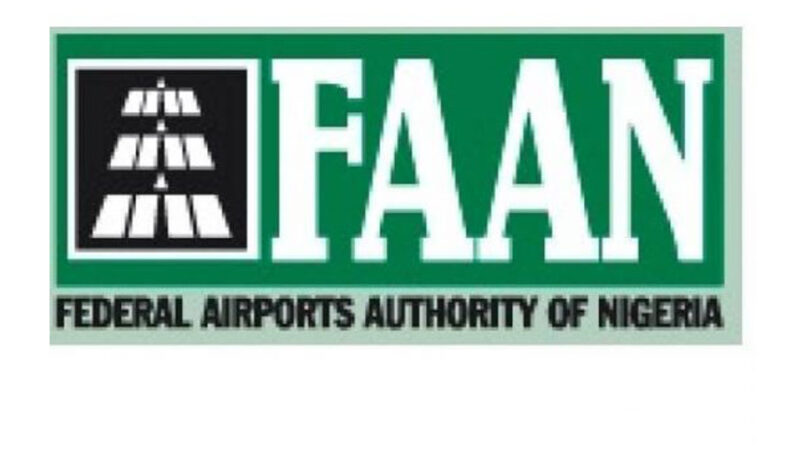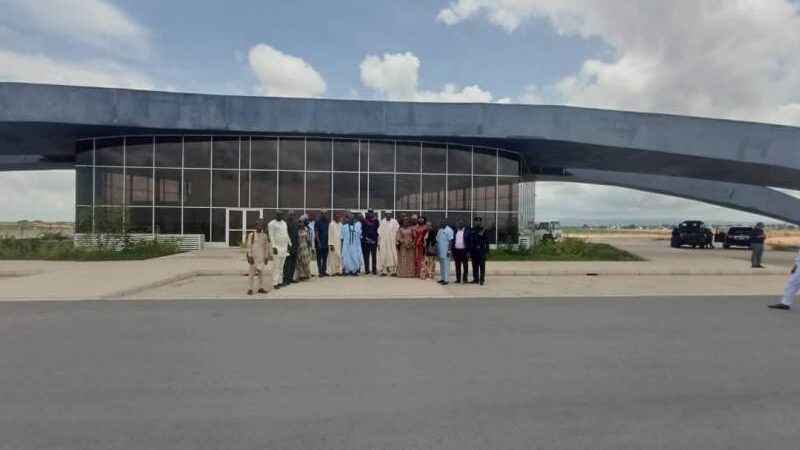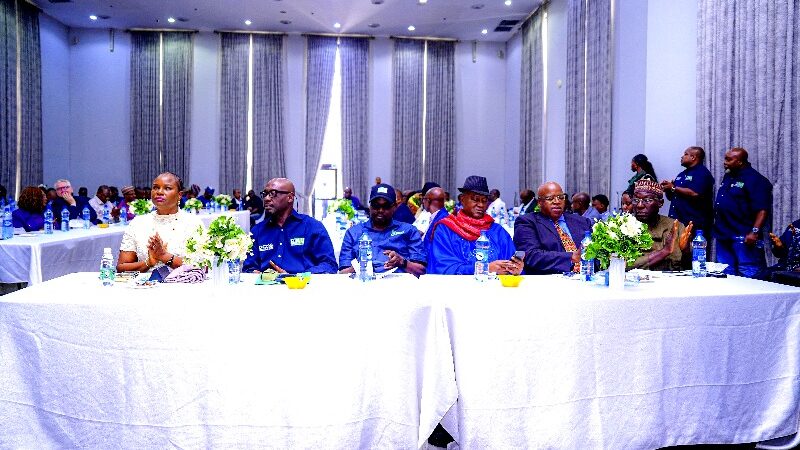Aviation Fuelling In Nigeria: Navigating The Storm, Finding Safe Habor

The aviation fueling sector is far more than a support service. It is the very lifeblood of aviation safety, reliability, and economic resilience.
The theme “Navigating the Storm” reflects both turbulence and opportunity, the challenges that test our resilience, and the strategic pathways that lead us toward calm waters, towards a safe harbor built on reform, infrastructure, and foresight.
MARKET CHALLENGES AND OPERATING REALITIES
The aviation fuel market in Nigeria operates within a complex and demanding environment. There are three critical challenges shaping the industry. They are:
Supply Chain Instability and Import Dependency: Despite being an oil-producing nation, Nigeria remains heavily reliant on imported Jet A-1. This dependency subjects our market to foreign exchange volatility and price fluctuations, weakening both airlines and suppliers.
High Jet Fuel Costs and Airline Impact: Jet A-1 constitutes a significant portion of airline operating expenses. Volatile fuel costs directly affect ticket pricing, route planning, and profitability. When fuel is unstable, the entire aviation value chain feels the shockwaves.
Jet Fuel Pricing In Nigeria: Market Realities And Regulatory Considerations: Jet fuel prices in Nigeria currently range between $0.60 and $0.85 per litre, depending on location. In comparison, prices in neighboring countries are significantly higher with Ghana at $1.25, Liberia at $1.10, and other West African markets above the $1 mark. This is despite the fact that these countries generally maintain stronger exchange rates than Nigeria. Nigeria’s pricing structure is determined by the ICE Platts benchmark, plus premiums, logistics, and financing costs, all of which remain relatively high.
While direct government regulation of jet fuel prices may appear desirable, it would likely reintroduce a subsidy regime, which is no longer sustainable in Nigeria’s current fiscal environment. However, trade and competition regulators must ensure that the market remains open and competitive.
At present, many marketers are reluctant to import jet fuel due to uncertainty surrounding the operations of the new domestic refinery. This hesitancy is undermining healthy competition. If this trend continues, there is a risk that a single dominant supplier could emerge, potentially leading to price manipulation and market inefficiencies.
Therefore, while price control may not be feasible, regulatory oversight to prevent monopolistic practices and encourage fair competition remains essential for market stability and consumer protection.
EMERGING OPPORTUNITIES: THE RISE OF DOMESTIC REFINING
Amidst these challenges, new “safe harbors” are emerging. The commissioning of new refineries and the rehabilitation of existing ones mark a pivotal shift for Nigeria. Domestic refining will reduce import dependence, stabilize local supply, and enhance quality control. This aligns perfectly with our national energy strategy, reinforcing fuel security while positioning Nigeria as a regional aviation hub.
STRATEGIC INFRASTRUCTURE INVESTMENTS
The launch of JUHI-2 (Joint User Hydrant Installation) has significantly improved storage, handling, and distribution efficiency, ensuring smoother airport operations.
However, many of our airports still depend on truck-to-wing fueling systems, a model that is costly and inefficient. To address this, we must expand capacity through Public–Private Partnerships (PPPs), targeted government investments, and greater involvement from local refineries. Licensing modular refineries to produce Jet A-1 domestically is not optional. It is strategic and essential.
INFRASTRUCTURE, STORAGE, AND DISTRIBUTION
The Nigerian Civil Aviation Regulations (Nig. CARs) Part 18 require every licensed fuel operator to maintain a minimum seven-day storage capacity, a standard grounded in safety, quality assurance, and operational continuity. Compliance is not negotiable.
INFRASTRUCTURE AND QUALITY CONTROL CONSTRAINTS
Many airports face limited storage and distribution capacity, coupled with inconsistent quality assurance. These gaps not only raise costs. They compromise safety, efficiency, and reliability. Across major airports, we have seen commendable progress:
Port Harcourt International Airport now hosts a 25-million-litre fuel farm linked to the Port Harcourt Refining Company. Mallam Aminu Kano International Airport boasts a 35-million-litre facility connected to the Kaduna Refinery. Murtala Muhammed International Airport should reactivate the 98-kilometre pipeline hydrant system linking the coastal reception to the NNPCL inland depot.
Without sufficient storage, consistency is an illusion; and without consistency, safety and reliability are compromised.
POLICY, SAFETY, AND SUSTAINABILITY
Safety remains the non-negotiable foundation of aviation, and fuel integrity lies at its core. Nigeria urgently needs a dedicated Jet A-1 regulatory framework harmonizing standards for production, storage, distribution, and quality assurance from refinery to wingtip. Technology will be the catalyst, through AI-driven surveillance, blockchain-secured traceability, and automated alerts to enhance transparency and accountability.
Looking forward, Sustainable Aviation Fuel (SAF) represents the next frontier. Nigeria’s six Technical Working Groups are mapping a national SAF roadmap, covering policy, feedstock, infrastructure, finance, sustainability, and technology. By leveraging agricultural waste and local biomass, Nigeria can become West Africa’s SAF hub, aligned with ICAO’s 2050 net-zero goal.
MARKET DEMAND AND GROWTH OUTLOOK (2025–2030)
Passenger traffic in Nigeria continues to rise, driven by connectivity, tourism, infrastructure investment, and economic diversification. The Jet A-1 market is projected to grow steadily through 2030, underpinned by domestic refining, infrastructure reforms, and regulatory consistency.
STRATEGIC PATHWAYS FOR SUSTAINABLE SUCCESS
To secure the future of Nigeria’s aviation fueling industry, we must pursue three key pathways:
1. Develop Future-Fuel Capabilities — Invest in SAF and renewable energy innovations.
2. Prioritize Quality and Safety Compliance — Strengthen standards, enforcement, and audits.
3. Build Consortium-Based Models — Encourage joint ventures, shared infrastructure, and bulk procurement for stability and fair competition.
STRATEGIC COLLABORATION AND CAPACITY BUILDING
The aviation fuel industry cannot thrive in isolation. Collaboration among refineries, marketers, airlines, and regulators (CAA & NMDPRA) is essential.
Through joint procurement, bulk supply agreements, and shared infrastructure, we can stabilize prices, prevent monopolies, and promote efficiency. Government must act as a catalyst, fostering trust, ensuring policy consistency, and promoting dialogue. Financing mechanisms such as PAIF, the Cape Town Convention, and Afreximbank initiatives can relieve liquidity pressures. Innovative tools like sale-leaseback and leveraged leases enhance flexibility.
Equally vital, is capacity development and local content. We must invest in training, research, and academia-industry alignment. When Nigerians refine, store, and distribute fuel safely, we fuel not just aircraft but our nation’s prosperity.
CONCLUSION AND CALL TO ACTION
The path to a safer, more efficient, and sustainable aviation fueling industry is clear but it requires bold leadership, collaboration, and unwavering commitment. Let us build a sector that mirrors the best of Nigeria, innovative, resilient, and globally competitive.
Every litre of Jet A-1 should symbolize a promise that every aircraft departing Nigerian soil carries the strength, reliability, and excellence of our aviation spirit.
Together, we can make Nigeria a continental model for fueling infrastructure, policy innovation, and sustainable aviation growth.
Excerpts from A Keynote Speech presented by Dr. Richard Aisuebeogun, MSc, MTPM, IAP at the CITA Energies Colloquium organized by League of Airport & Aviation Correspondents (LAAC) at Raddison Blu Hotel, Lagos on Thursday, October 23,2025
SEE MORE PHOTOS






